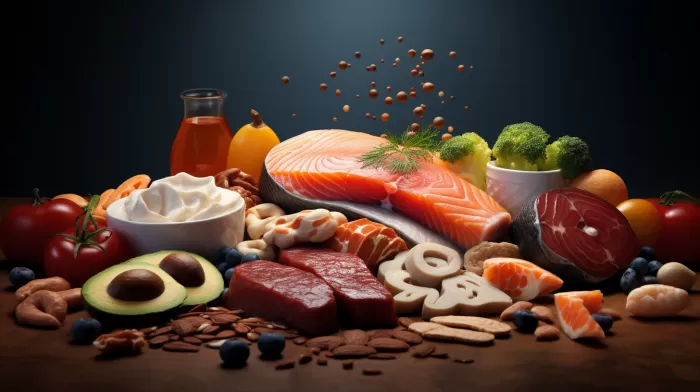Choline, a vital nutrient often used by bodybuilders and to combat asthma, is now gaining attention for its remarkable benefits on brain health. This essential B-vitamin, which can be found in liver, muscle meats, fish, nuts, and eggs, has been linked to lower chances of schizophrenia and potential reduction of Alzheimer’s disease and dementia.
Researchers at the University of Colorado discovered that when choline was given to expectant mothers during the last two trimesters of pregnancy, their babies displayed improved cognitive functioning. These results indicate that the newborns possessed fewer nervous system characteristics that might render them more vulnerable to schizophrenia. Lead researcher Robert Freedman, M.D., explains the importance of this discovery, stating, “Genes associated with schizophrenia are common, so prevention has to be applied to the entire population, and it has to be safe […] our finding that it ameliorates some of the pathophysiology associated with risk for schizophrenia now requires longer-term follow-up to assess whether it decreases risk for the later development of illness as well.”
This breakthrough study highlights the importance of choline for pregnant women, but the brain health benefits of this vitamin extend to everyone. In addition, choline plays a significant role in maintaining optimal biological functions. For a healthy body and mind, adults should aim for a daily choline intake of 425 mg for women and 550 mg for men.
Besides its impact on schizophrenia, choline has been found to lower the risk of Alzheimer’s disease by reducing the accumulation of amyloid plaques in the brain. Amyloid plaques are known to interfere with cell-to-cell communication and cause inflammation that can lead to brain cell destruction. In a study conducted on mice, researchers found that when mice with Alzheimer’s-like symptoms received a diet rich in choline, the plaques decreased. Consequently, these mice demonstrated improvements in their memory and overall cognitive abilities.
Choline intake has also been linked to preserving memory and even rebuilding damaged brain cells. Healthy levels of choline support brain plasticity, a process that involves the restructuring of brain cells and neurons to accommodate new learning and experiences. This is especially crucial for children, whose rapidly developing minds depend on brain plasticity for proper cognitive growth. Moreover, choline has been shown to enhance long-term memory, which is often affected by neurodegenerative conditions such as Alzheimer’s disease and dementia. Therefore, incorporating choline-rich foods into your diet can help preserve your precious memories and protect your brain from age-related decline.
In addition to its remarkable benefit to the brain, choline has a host of other advantages, such as supporting liver function and metabolism. This crucial nutrient is involved in the process of eliminating toxins and waste, thus, maintaining a healthy liver. Choline is also required for the synthesis of phosphatidylcholine, a compound that promotes efficient communication within the cell, and betaine, a molecule involved in detoxification and metabolic regulation.
For those concerned about heart health, choline may also provide protection against cardiovascular diseases. It has been discovered that this nutrient lowers homocysteine levels, an amino acid that, when elevated, has been associated with an increased risk of heart attack and stroke.
Given the numerous health benefits of choline, it’s essential to include this nutrient in your diet. Fortunately, many choline-rich foods are widely available and can easily be incorporated into your daily meals. Here are some examples of foods that are high in choline content:
- Eggs: A single egg contains about 147 mg of choline, mostly in the yolk. This makes eggs one of the best dietary sources of this nutrient.
- Organ meats: Liver is an excellent source of choline, with beef liver providing approximately 355 mg per 3-ounce serving. Chicken liver is also a good option.
- Fish: Fish, such as salmon and cod, provide substantial amounts of choline.
- Meat: Beef, chicken, and turkey are all good sources of choline. Aim for lean cuts to maintain a healthy diet.
- Nuts and seeds: Almonds, peanuts, and sunflower seeds are among the top choices for obtaining choline from plant-based sources.
- Vegetables: Cruciferous vegetables, such as broccoli, Brussels sprouts, and cauliflower, are choline-rich options.
- Whole grains: Whole grains, including quinoa, barley, and brown rice, can also contribute to your daily choline intake.
With its ability to support brain health, liver function, and heart health, choline is a vital nutrient that should not be overlooked. Including choline-rich foods in your daily diet can help protect your brain from cognitive decline and preserve memory. By understanding and maximizing the brain health benefits of choline, you can ensure your mind stays sharp and alert for years to come.



